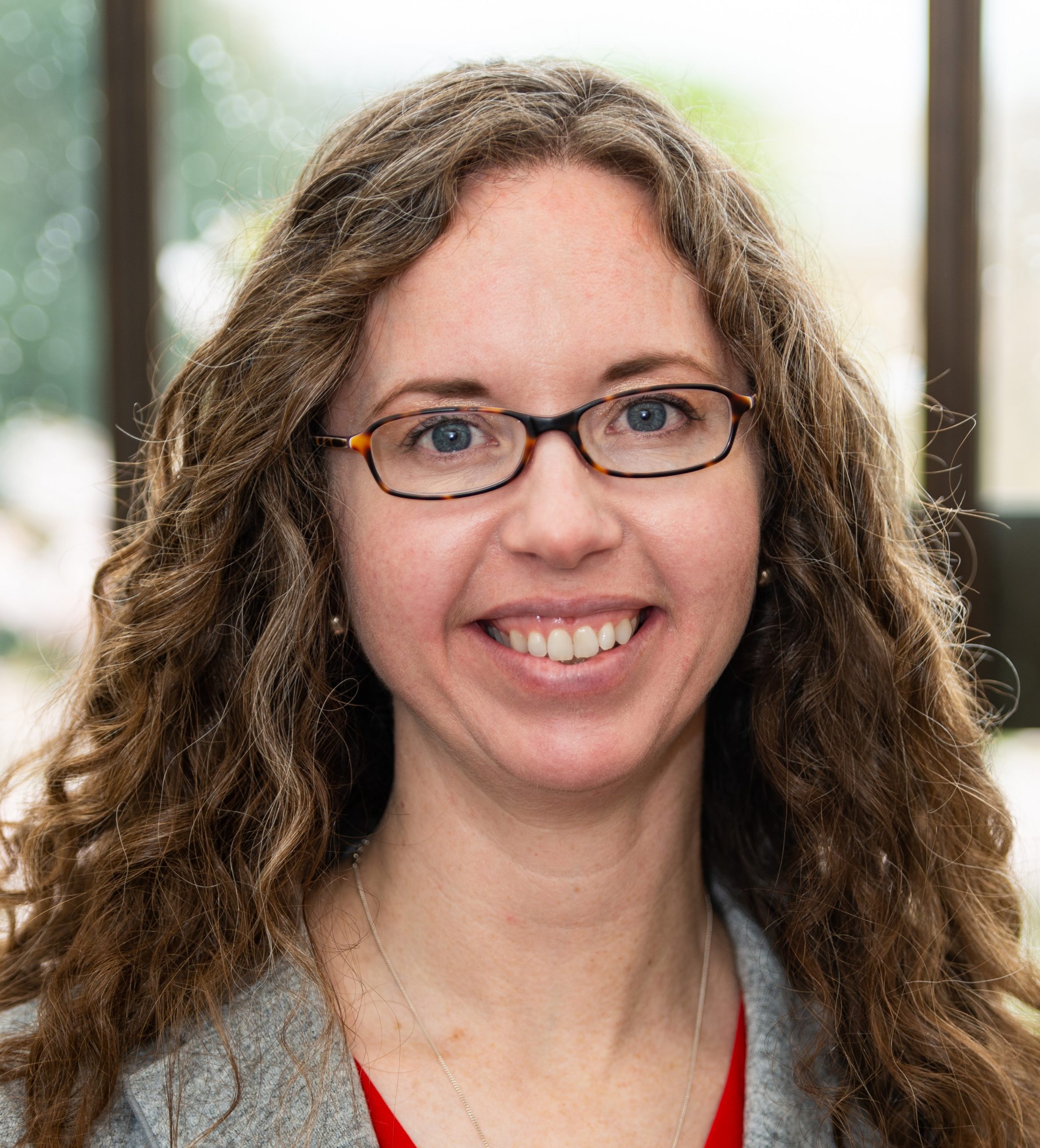
The Infectious Disease Board—which meets twice a year and is responsible for oversight of policy and assessment in the specialty—held its fall meeting on September 19, 2024. The Specialty Board reviewed updates on ABIM’s work in a number of key areas and discussed other pressing issues in the field. In addition, representatives from the Infectious Diseases Society of America (IDSA) and the Society for Healthcare Epidemiology of America (SHEA) joined for a portion of the meeting*.
ABIM and the Infectious Disease Board gratefully acknowledge the service of Dr. Erica Johnson, whose term as chair ended on September 30, 2024, when she assumed the position of Senior Vice President for Academic and Medical Affairs at ABIM. Dr. Johnson, who also served as Secretary and Council Director on the ABIM Board of Directors, joined the Infectious Disease Board in 2018 and served as chair from 2021 to 2024.

In October, the Board of Directors approved the appointment of Erin Bonura, MD, as the Chair of the Infectious Disease Board effective immediately. Dr. Bonura joined the Specialty Board in 2020. Learn more about her on the ABIM Blog.
The following is a summary of the fall meeting. Visit the ABIM Blog for reports of prior meetings.
ABIM News and Conversation with the President*
Prior to the meeting, members and guests of the Infectious Disease Board had the opportunity to view a recorded video update from Furman S. McDonald, MD, MPH, who assumed the role of President and Chief Executive Officer (CEO) of ABIM and ABIM Foundation on September 1, 2024. Dr. McDonald reflected on current transitions for ABIM as well as key topics for the Specialty Board’s consideration and awareness:
- A proposed pilot model for “exceptionally qualified” international medical graduates (IMGs) pursuing accredited subspecialty fellowship in the U.S. or Canada to become eligible for ABIM Board Certification: ABIM invited commentary from the diplomate community throughout September for the ABIM Council to consider before making a final decision early in 2025, and Dr. McDonald noted that this timing coincides fortuitously with—but is distinct from—similar initiatives for state medical board licensure. Learn more through a video and FAQs on the ABIM website.
- ABIM’s progress in engaging more closely with early career physicians (diplomates who earned initial certification less than 10 years ago): a task force of governance members is making plans for the coming year to convene early career physicians, create a platform for their perspectives and provide opportunities for them to be more directly involved in ABIM.
- The continued popularity of the Longitudinal Knowledge Assessment (LKA®), high rates of reported satisfaction and ongoing enhancements: on average, 80% of eligible diplomates continue to choose the LKA over the traditional, 10-year Maintenance of Certification (MOC) exam, and 70.7% of survey respondents agreed with the statement, “I am satisfied with my LKA experience so far.” Still, Dr. McDonald noted, ABIM continues to evolve and improve the assessment based on diplomate feedback.
- The recently announced removal of the requirement to earn some MOC points every two years to be considered “Participating in MOC.” With the availability of more activities that earn physicians MOC points (e.g., continuing medical education for MOC, UpToDate®, the LKA), the Council determined that the two-year point requirement was no longer needed and that its removal would benefit physicians by making the program simpler. The requirement to earn at least 100 MOC points every five years remains in effect.
The group’s conversation touched on a few different areas, including research and communication with the diplomate community. Dr. Johnson invited the Specialty Board to consider ways to facilitate research focused on certification outcomes specific to infectious disease and initiatives for building trust, which Dr. McDonald agreed were of imperative importance to the field. The group also discussed the importance of ABIM and members of governance partnering and fostering relationships in discipline-specific societies to promote the value of certification to physicians and engage physicians in ABIM’s mission.
In discussing the proposed pathway pilot for IMGs, there was some concern about what measures are in place to differentiate exceptionally qualified graduates. Dr. McDonald acknowledged that some have expressed this and other concern about the pathway during an open comment period, which ended October 1. He shared that a similar proportion of respondents expressed support during the open comment period. He also emphasized that this was evidence of the need for a pilot, grounded in competency-based medical education combined with assessment, which would help answer some of the questions raised about the pilot.
Finally, the group discussed steps ABIM is taking to address concerns previously expressed by IDSA about time restrictions on the LKA and the cost of assessments and MOC. Dr. McDonald stated that ABIM is at work on solutions based on this feedback and that of other groups, and pointed out that MOC fees have not increased since ABIM implemented the current annual fee structure in 2022; there is even a reduction in costs associated with choosing the LKA over the traditional, 10-year MOC exam.
Diversity, Equity and Inclusion (DEI) Initiatives at ABIM*
Natalie S. Plummer, Esq., Manager, DEI Programs at ABIM, and Pamela White, Senior Vice President, Communications, and Chief DEI Officer, reported on the work of the DEI team at ABIM and recent advances in ABIM’s DEI initiatives. These include:
- ABIM’s work with participating medical society partners, which led to the formation of the Diversity, Equity and Inclusion Collaborative Network. The goal of the network is to share best practices, coordinate resources and create strategies to support and move diversity work forward as a community dedicated to this work.
- Improvements to the ABIM Physician Portal that now allow diplomates to more accurately self-identify their race/ethnicity and gender with an expanded list of options. This also aligns with ABIM’s efforts to increase diversity in governance and eliminate bias in assessment questions. Since this effort began, ABIM has seen consistent growth in the number of physicians supplying information, with more than 77,000 diplomates updating their information.
- A report led by Dr. Sara Ray, a medical historian from the University of Pennsylvania, to study the governance records of ABIM. The goal of this project was to determine whether ABIM’s practices within the context of the past caused harm to historically disadvantaged groups and whether that might require restorative action and transparency.
Some of the points raised in discussion by members of the Specialty Board included incorporating DEI materials and social determinants of health into exam content, and the importance of introducing greater diversity into the healthcare workforce to enhance health equity and address racial disparities in treatment and outcomes. Others emphasized the importance of continuing to include voices from the LGBTQ+ community, especially given current challenges that that community faces and in the context of infectious diseases. Ms. White noted that discussion around DEI content in assessment items has already begun with the work ABIM is doing to review existing questions. She also remarked on the importance of continuing to have conversations about DEI, the need for advocacy and the importance of recognizing systemic issues (such as scientific curricula in urban school districts) that contribute to fewer students pursuing medicine.
The group also discussed progress ABIM has made in enhancing the diversity of its governance and the Item-Writing Task Forces over the last few years.
Diplomate Professional Profile*
In summer 2023, ABIM invited a pilot group of diplomates to complete the newly developed Diplomate Professional Profile (DPP), a questionnaire required of all diplomates and built into the Physician Portal. The questionnaire relates to clinical work and practice patterns, and serves to inform ABIM’s ongoing efforts to update assessment options and exam blueprints, and develop policies for initial certification and MOC. Since last year, ABIM has continued to invite all remaining eligible diplomates on a rolling basis to complete the DPP. Diplomates receive a prompt to complete their professional profile when they sign in to their Portal.
Siddharta G. Reddy, MPH, Senior Research Associate at ABIM, reported to the Specialty Board that 31% of diplomates overall have completed their DPP; he also reviewed profile questions specific to infectious disease.
Members of the Specialty Board offered suggestions about the kind of information that might be valuable to understand, such as the percentage of physicians practicing in underserved communities and rural areas. One pointed out that 80% of U.S. counties lack an infectious disease physician, and Mr. Reddy noted that among other things, the DPP gathers ZIP codes, which will provide insight into the regions where physicians—and infectious disease specialists—are practicing. He assured the Specialty Board that ABIM could make enhancements to the survey to better capture desired information.
Engaging Early Career Physicians*
As mentioned during the Specialty Board’s earlier discussion with Dr. McDonald, the ABIM Council has instituted a task force to work on engaging early career physicians and residents, which has so far included listening sessions and group discussions about the early career physician experience.
Dr. Johnson spoke about the importance of clear and effective communication with recently certified diplomates about ABIM, the MOC program and the organization’s strategic direction for the future. The group discussed where communication efforts could improve, as well as resources that might be useful for early career physicians. They also explored some ideas of how to involve early career physicians more closely in ABIM’s work. For instance, ABIM has already created opportunities for early career physicians to sit in voting positions on the Specialty Boards for a more active role in policy and assessment oversight.
Update on Developing a Quality Agenda*
In 2021, the American Board of Medical Specialties (ABMS)—which comprises 24 medical certifying boards in the U.S., including ABIM—adopted new standards for continuing certification that include a requirement for member boards to work with stakeholders to facilitate the development of discipline-specific quality agendas. The Specialty Boards discussed this in their spring 2023 meetings with suggestions for ABIM to consider as it moved forward, and at the fall meeting received an overview of progress to date and the themes they had agreed to explore. The Infectious Disease Board also heard about what will happen next in the process toward meeting the requirement for its discipline.
Society guests departed at this point in the meeting.
Recommending Candidates for the Specialty Board to ABIM Council
Each year, ABIM initiates the process of recruiting candidates for open seats on the Specialty Boards; each member serves a three-year term with the option for one renewal, and positions open on a rolling basis. ABIM posts all openings on its website and shares them with diplomates and other stakeholder groups. The Specialty Board pays close attention to its own present and future composition, namely how practice setting and region, career stage, educational background (U.S., international) and race and ethnicity are represented among its members. The ABIM Council makes final selections based on the Specialty Board’s top two recommendations for each open seat.
In June, ABIM issued notice about openings on the Infectious Disease Board for physician candidates for terms beginning July 1, 2025. At the fall meeting, the group discussed the candidates they had interviewed and voted on four to recommend to the Council. ABIM will announce the final appointees in spring 2025 prior to the start of their term.
Learn More
The Infectious Disease Board values the feedback and commentary of the entire medical community, including diplomates and society partners.
Are you interested in getting involved?
- Apply to an opening on ABIM Governance or the Item-Writing Task Forces.
- Join the Community Insights Network, an interactive community for sharing your feedback.
Keep on top of the latest news from ABIM.
- Subscribe to the ABIM Blog.
Do you have questions? Contact ABIM directly:
- Call 1-800-441-ABIM (2246).
- Email request@abim.org.
*Indicates society guests were present for this agenda topic.



